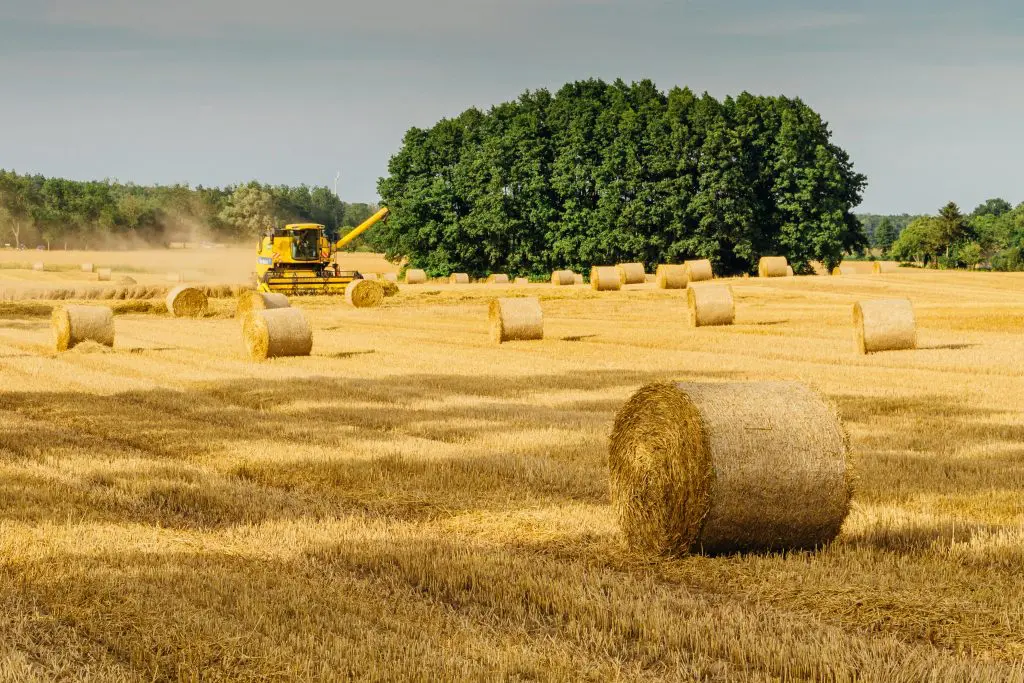
EU Farmers and Foresters Collaborate to Advance Sustainable Bio-Based Solutions Across Europe, farmers and foresters are working together to share sustainable, bio-based practices—showcasing how local expertise and European cooperation can drive the transition toward a greener, circular economy. Through real-life experimentation and knowledge-sharing, this growing network is helping shape the future of farming and forestry. […]
Across Europe, farmers and foresters are working together to share sustainable, bio-based practices—showcasing how local expertise and European cooperation can drive the transition toward a greener, circular economy. Through real-life experimentation and knowledge-sharing, this growing network is helping shape the future of farming and forestry.
One example is Michalis Genitsariotis, a former salesman who became an olive grower in Halkidiki, northern Greece. After changing careers during the 2008 financial crisis, Michalis turned to olives, a staple crop in his region, with a new goal: to transition to fully organic farming. He’s now learning to make his own compost from pruning waste and household organics, aiming to reduce reliance on chemical fertilisers and pesticides.
Michalis is part of a broader European initiative called BBioNets—an EU-funded network launched in 2023 that connects experts from Czechia, Greece, Ireland, Italy, Poland, and Spain. Rather than invent new technologies, the BBioNets team is identifying existing sustainable techniques and promoting them across regions where they can make the most impact. Their work supports the EU’s Bioeconomy Strategy, which aims to transform renewable biological resources like crops, forests, algae, and organic waste into food, materials, energy, and services.
At the heart of BBioNets are Forest and Agriculture Networks (FANs)—local hubs in each of the six countries that bring together farmers, foresters, advisors, and policymakers. These networks co-design, test, and adapt bio-based technologies that are already working in one region and assess their applicability elsewhere. According to Carmen Girón Domínguez, a biologist and BBioNets coordinator working with the Circular Bioeconomy Research Group at Munster Technological University in Ireland, the goal is simple: amplify what’s already working.
‘We don’t want to reinvent the wheel,’ she explains. ‘We want to help what’s already out there reach the people who need it.’
So far, the team has catalogued 113 bio-based technologies used at the local level. Examples include transforming apple pulp into compostable packaging in Poland, using bacteria to process hemp in Italy, and fermenting straw, wood, and grass into bioenergy and fertiliser in Germany. An online tool is being developed to help regions identify which of these innovations could work in their own context.
Despite the innovation, scaling these practices isn’t without challenges. While EU policy now allows additional funding for eco-friendly methods—such as composting or recycling organic waste—many farmers face bureaucratic hurdles and unclear application processes. As Dimitrios Moustakis from Greece’s American Farm School (AFS) explains, ‘Farmers don’t just need money – they need clearer rules and guidance, too.’
To address this, BBioNets is collecting insights from all six participating regions and turning them into practical policy suggestions, aiming to influence national governments and improve support systems for smallholders. The American Farm School in Thessaloniki, a key partner in Greece, is also helping farmers like Michalis develop sustainable skills through lifelong education.
In the spirit of open collaboration, BBioNets has pledged to make all findings publicly available. ‘The platform, the catalogue, the educational materials – everything is going to be freely available to everyone,’ said Girón Domínguez. By enabling access, the project hopes to inspire broader change—especially in rural communities where financial stability and long-term predictability remain critical for survival.
Michalis, for one, hopes his journey will inspire others in his region to manage biomass collectively and add value to olive production in Halkidiki. As he continues to grow both his grove and his knowledge, he also imagines a future where his sons could take over—one running the farm, the other managing the olive oil brand.
At All-Ireland Sustainability, we’re committed to building a greener, fairer island—together. Stay informed on the latest environmental initiatives, community action, and policy developments shaping sustainability across Ireland, North and South.
👉 Sign up for our newsletter today and be the first to hear about upcoming events, expert insights, and ways to get involved.
Whether you’re a seasoned advocate or just starting your journey, new members are always welcome—your voice matters.
Subscribe now and be part of the All-Ireland Sustainability network.